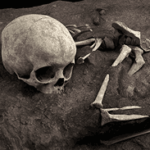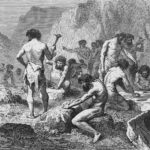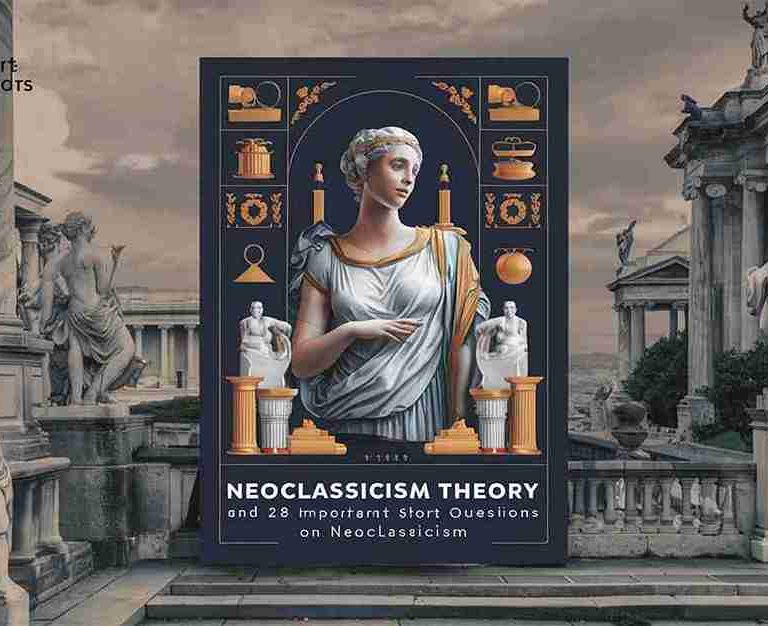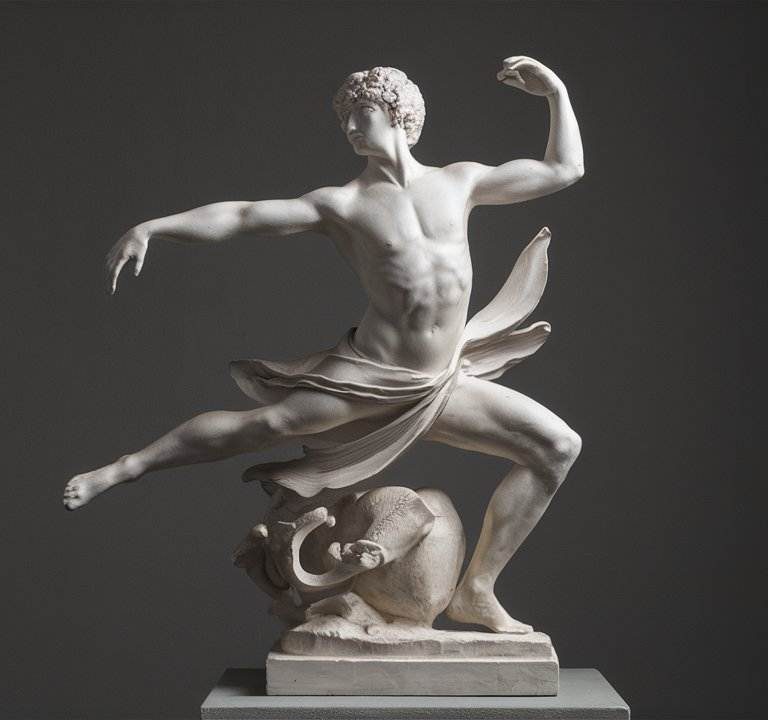Since brass, nor stone, nor earth, nor boundless sea: Sonnet No. 65:William Shakespeare

William Shakespeare
Since brass, nor stone, nor earth, nor boundless sea: Sonnet No. 65:William Shakespeare

Sonnet No. 65
-William Shakespeare
Since brass, nor stone, nor earth, nor boundless sea,
But sad mortality o’er-sways their power,
How with this rage shall beauty hold a plea,
Whose action is no stronger than a flower?
O how shall summer’s honey breath hold out
Against the wrackful siege of batt’ring days
When rocks impregnable are not so stout,
Nor gates of steel so strong, but Time decays?
O fearful meditation! Where, alack,
Shall Time’s best jewel from Time’s chest lie hid?
Or what strong hand can hold his swift foot back,
Or who his spoil o’er beauty can forbid?
O none, unless this miracle have might
That in black ink my love may still shine bright.
PARAPHRASE
Since brass(= brass eternal), stone (= lofty towers), earth (= firm soil) or limitless ocean cannot withstand the ravages of Time, how can beauty be able to hold out against them, when its strength is no greater than a flower’s? (1-4) O how shall summer’s sweet warm winds resist the crushing blows of Time, when impregnable rocks or gates of iron are not so strong but Time decays them?
(5-8) A fearful contemplation! for where, alas, shall Time’s best jewel (= beauty) be hid from Time’s treasure-chest (= grave)? Or what strong hand (= handwritten verses) can stay Time’s foot? Or who can restrain the spoliation of beauty? (9-12) None unless there is hope in this miracle that the beloved will be immortalized by verses (13-14).
William Shakespeare
[A] An Introductory Note
Sonnet 65 shows obvious links with 63 and 64 in both theme and language. It reminds us of the conclusion of sonnet 63, while the opening recalls that of sonnet sixty-four. Leishman thinks fine personification in this sonnet is comparable only to Horace.
“The sonnet shows William Shakespeare’s vividly metaphorical imagination in its most mature vein: images pour out running into one another, merely glanced at in a vigorous verb (‘over-sways’) or in a phrase which jumps over the missing link (‘summer’s honey breath’) or turning from legal (‘hold a plea’) to military action (‘hold out’ against a siege of ‘battering days’), and yet never leave us confused or questioning. And all this combined not only with Latinate compactness but with Spenserian sweetness, most notably in the lovely lines three to five, suitably contrasted by the clattering consonants of six and seven.”
William Shakespeare
[B] An Analysis of the Sonnet
Nothing on earth can hold out against the ravages of Time. Time wreaks its ruin on brass eternal, lofty towers, firm soil, boundless sea etc. Since seemingly indestruc-tible things like brass, stone etc. cannot resist the ravages of Time, how can beauty whose strength is no greater than a flower’s rebuff the assault of Time? Or how can warm wind of summer time resist the destructive onslaught of powerful Time, when stout rocks and strong iron-gates cannot withstand Time’s decay?

The contemplation of Time’s ravages horrifies the poet. He sees Time will put beauty, which is Time’s gift to us, into its chest for oblivion. Time is a speedy runner. None can stay its onward march. No one can prohibit its ravages unless the poet’s verses perform the miracle of making beauty shine (by immortalising his beloved).
William Shakespeare
[C] A Critical Appreciation of the Sonnet
Sonnet 65 is one of the most famous sonnets of William Shakespeare. It contains the ideas of the last two sonnets, the couplet recalling the conclusion of sonnet 63 and the opening that of sixty-four. Like sonnet 64 it dwells on the calamitous Time wreaking its ruin on all earthly things, however mighty or magnificent.
Thus brass eternal, lofty towers, firm soil, boundless sea etc. are all devoured by Time with the hard teeth of the years. Even beauty, Time’s best jewel, is not spared. There is no one who can prohibit Time’s ravages or exclude the beloved’s beauty from Time’s ravages. Beauty can shine clear and unsullied by decay or death eternally only when the beloved will be immortalized by the poet’s verses.
Melancholy is the dominant note of the sonnet. The sense of the relentless and irresistible operation of Time leading to decay and death of all that comes into existence informs the whole poem and lends it a melancholy strain. The thought that beauty which is the gift of Time to man is taken back by Time and locked in its chest (i.e. in the coffin and the grave) depresses the poet and he exclaims and apostrophises in despair,
William Shakespeare
“O fearful meditation! Where, alack,
Shall Time’s best jewel from Time’s chest lie hid?”
The poet finds a fragile possibility of the means to preserve human beauty in his own writing.
As in many other sonnets William Shakespeare here too gives love a value in the end above the decay or despair that dominates it. In the couplet the poet shows love as shining brightly for ever in the face of Time taking and locking everything in its cheu (i.e. the grave). Nothing but love can prohibit Time’s ravages:
“O none, unless this miracle have might:
That in black ink my love may still shine bright.”
The sonnet is remarkable for its vivid, apt and suggestive imagery. It has been rightly said that the richness of William Shakespeare’s sonnets derives more from their imagery and diction than from any other attribute. Imagery here not only adds to the richness of the sonnet, but also expresses the thought and evokes Time’s irresistible destructive. ness. In line two mortality is imaged as a king overpowering his opponents (i.e. human artefacts and objects of nature). Beauty is imaged as an impotent litigant or agent pleading its case against Time seeking to devour it in line three.
William Shakespeare

There is the battle and siege imagery in lines 5-6. Time is pictured as an army laying seige to the sweet warm winds of summer time which bring flowers to maturity. There is in “Shall Time’s best jewel from Time’s chest lie hid?” the image of a jewel, lent by Time for us to enjoy for a period, which we try to hide from Time that will take it back and lock it in its chest (the grave) for oblivion. William Shakespeare seems fond of the image of a jewel in a chest. Compare sonnets 48 and 52; it appears in Henry VI, 3, 2, 409-410:William Shakespeare
“A jewel, locked into the woefull’st cask That ever did contain a thing of worth.”
as also in Richard II and King John. The jewel image reminds us of the famous beggar image of Time in William Shakespeare’s Troilus and Cressida (3, 3, 145-146):
“Time hath, my lord, a wallet at his back, Wherein he puts alms for oblivion.”
In “What strong hand can hold his swift foot back” Time is imaged as a swift runner.There is the military imagery in “his spoil o’er beauty.” Time is imaged as a soldier taking plunder from an enemy in battle. The poet’s love is imaged as the sun shining, for ever, clear and unsullied by decay or death.
William Shakespeare
The sonnet illustrates William Shakespeare’s favourite use of ambiguity as a dramatic device to give insight into mixed feeling. Action in line four has double meaning-action (operation) of beauty and military action. The ambiguity of from imparts two meanings to the line “Shall Time’s best jewel from Time’s chest lie hid?” It may mean either ‘Where can the best jewel that Time has produced out of his casket be hidden?” or ‘Where can Time’s jewel be hidden away so that it may not be put into Time’s chest. the grave?”
The sonnet has perfect structure. The quatrains are cumulative in effect. The first two quatrains deal with Time’s ravages; the third with the poet’s desperate search for the means to save beauty from Time’s onslaught. In the couplet he finds a fragile possibility of this means in his own writing. The couplet is prepared for by previous ‘religious diction’: brass (of memorials), mortality, meditation.
William Shakespeare
The style is apt and befits the theme. The unqualified use of ‘impregnable’ in line seven (‘When rocks impregnable are not so stout’) intensifies the idea of Time’s irresistible power. The omission of the object of the verb ‘decays’ in ‘but Time decays’ (line 8) gives a sense of Time’s destructive power as absolute and indeterminate. The diction is grand. Ti combines Latinate compactness with Spenserian sweetnees, most notably in the lovely lines three to five.
[D] Notes & Annotations
Line 1-8
Since: Since there are neither. Since brass… sea: The first line recapitulates the objects on which Time wreaks its ruin in sonnet 64, II. 1-8. brass = brass eternal (4), stone = lofty towers (3), earth = firm soil (7), boundless sea = hungry ocean (5). 2. But sad….power: But their strength is prevailed over by sorrowful, inescapable ruin. In other words, they (brass, stone, earth, boundless sea) like man are mortal by nature and subject to the assault of Time. Since none of brass, stone, earth or boundless sea is exempt from the operation of sad mortality.
Sad determined/inescapable. sad mortality: calamitous destruction. over-sways: is more powerful than they are. Oversways has political connotations which recall the images of kingdom and state in sonnet 64. 3. with against. this rage Time’s violence. How with this rage plea: If seemingly indestructible things like brass or stone etc. cannot withstand the ravages of Time, how can such a fragile thing as beauty hold out against the destructive fury (violence) of Time. hold a plea: be able to plead its case or suit.
William Shakespeare
4. action: operation/legal suit. stronger more powerful/more resistant. flower: Often used as a symbol of the shortness of human existence. 5. summer’s honey breath: the sweet (honey) warm winds of summer time (which bring ‘flowers’ to maturity); the sweet perfume of the summer flower. hold out endure resist. 6. wrackful: destructive, ruinous (variant form of wreckful). siege of battering days: besieging by the crushing blows (battering) of Time. days: the hours of passing Time.
7. impregnable: able to hold out against (resist) all attacks; impregnable continues the siege imagery. “The unqualified use of ‘impregnable’ here intensifies the idea of Time’s irresistible power.” (C. B. Evans) stout: strong. 8. but Time decays: which Time does not decay. The omission of the object of the verb ‘decays’ gives a sense of Time’s destructive power as absolute and indeterminate.William Shakespeare
Lines 9-14
9. fearful meditation contemplation full of dread and terror. 9-10. Where, alack/Shall Time’s…hid? Where alas, shall beauty, Time’s most precious jewel hide itself safely from being cast into Time’s chest (i.e. miser’s coffer/coffin) where it will be lost in oblivion. The jewel is called Time’s jewel because it is generated in Time. Time thus first gives and then takes back its gift.
Time’s chest: Commentators have been troubled by the apparent inconsistency of hiding from a chest; but the image is of a jewel, lent by Time for us to enjoy for a period, which we try to hide from Time who will take it back and lock it in its treasure chest for oblivion. [The chest bears the connotation of the coffin and the grave.] We are here reminded of the well-known speech of Ulysses in Troilus and Cressida, III, 3, 145-146:William Shakespeare
“Time hath, my lord, a wallet at his back
Wherein he puts alms for oblivion.”
Time’s best jewel beauty. Time’s chest coffin. 11. hand hand connotes handwriting (the poet’s handwriting verses in black ink). swift foot Time is pictured as a swift runner. 12. spoil over beauty: spoliation of / injury to beauty. Here is play on ‘spoil’ = pluder taken from an enemy in battle. who his spoil o’er….. forbid: No one can prohibit Time’s ravages or exclude the beloved’s beauty from Time’s ravages forbid prohibit, rule out/ restrain, hinder.
13. none none can restrain Time from wreaking its ruin on beauty, miracle: it refers to the idea that ‘black ink’ can make beauty shine in opposition to the conventional idea that ‘black’ and beauty were antithetical. It may also mean the miracle that the poet’s verses will immortalise the beloved. 14. my love the beloved. still always, eternally. bright: clear and unsullied by decay or death.William Shakespeare
[E] Explanations with Comment
Explanation No. 1:
“O how shall summer’s honey breath hold out
Against the wrackful siege of batt’ring days
When rocks impregnable are not so stout,
Nor gates of steel so strong, but Time decays?”
This is the second quatrain of William Shakespeare’s sonnet 65 beginning “Since brass, nor stone, nor earth, nor boundless sea.” Nothing on earth can hold out against the ravages of Time. Time wreaks its ruin on brass monuments, lofty towers, firm soil, boundless sea etc. If such seemingly indestructible things as brass, stone etc. cannot withstand the onslaughts of Time, how can human beauty whose strength is no greater than the winds of summer time which bring flowers to maturity. William Shakespeare
Summer winds are impotent It cannot withstand the ruinous blows of Time, just as a weak army can stand out agains the siege laid to it by another militarily powerful army. Again, when no impregnable rocks or strong gates of steel can resist the mighty assault of Time, then how can sweel summer winds rebuff the decaying influence of Time?
Explanation No. 2:
“O fearful meditation! Where, alack,
of be is Shall Time’s best jewel from Time’s chest lie hid?
Or what strong hand can hold his swift foot back,
Or who his spoil o’er beauty can forbid?”
This is the third quatrain of William Shakespeare‘s sonnet 65 beginning “Since brass, no stone, nor earth, nor boundless sea.” Nothing on earth can endure in the face of Time’s decaying influence. Time wreaks its ruin on brass monuments, stone buildings, firm soil, boundless deeps etc. Human beauty and sweet summer winds cannot hold out against the ravages of Time. There are no rocks or steel gates which are so strong as to resist Time’s destructive onslaughts. The contemplation of destruction wrought by Time provokes fear. William Shakespeare
The poet cannot make out where beauty, Time’s most precious jewel shall hide itself in safety from being cast into Time’s chest (grave). Beauty is called Time’s jewel because it is generated in Time. Time thus first gives and then takes back the gift. The poet knows that Time is omnipotent and none can stay its onward march. Time is here imaged as a speedy runner. Moreover, no one can prohibit the spoliation of beauty by Time. Shakespeare uses military imagery to bring home to us the injury done to beauty by Time. A soldier takes plunder from an enemy in battle. Likewise, Time takes plunder from beauty.William Shakespeare
Q.1. What is meant by “summer’s honey breath” in Sonnet 65?[B.U. (Hons.) 2006]
Ans. “Summer’s honey breath” means the sweet (honey) warm winds of summer time (which bring flowers to maturity).
It may also mean the sweet perfume of the summer flower.
William Shakespeare
Q.2. “O fearful meditation.” (L. 9)-What are the meditations, and why are they fearful?[B.U. (Hons.) 2007]
Ans. The meditation is the contemplation of the relentless and irresistible operation of Time leading to the decay and death of all that comes into existence. They are fearful because they cause us dread and terror.
Q.3. What does “Time’s best jewel” refer to in William Shakespeare’s sonnet 65? Why is it so called?[B.U. (Hons.) 2007, 2005]
Ans. “Time’s best jewel” refers to ‘beauty’.
It is called Time’s best jewel because it is generated in Time. Time first gives and then takes back its gift.
William Shakespeare
Shall I compare thee to a summer’s day : Some Questions & their Answers : Sonnet no. 18














